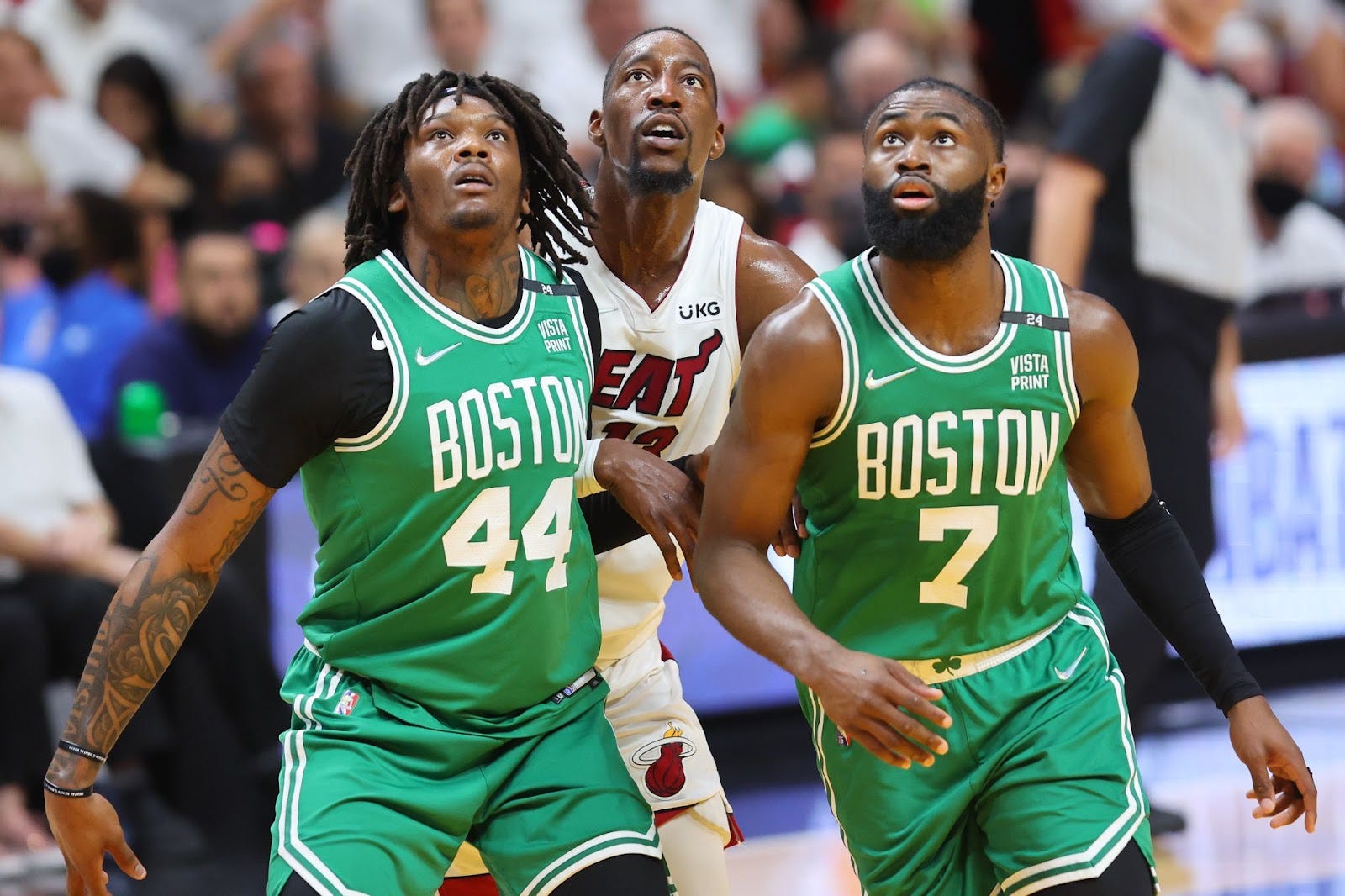BY DAVID THORPE

These NBA Finals have me feeling like Vizzini in the famous battle of wits scene in The Princess Bride:
The Celtics are tired. Should the Boston Celtics lose Game 1, they’ll have to win four of six against these dynastic Golden State Warriors—so, clearly, I cannot select the Celtics to win this series.
Yet, the Celtics also have proved themselves capable of winning high-pressure elimination games on the road. Clearly, I cannot pick the Warriors to knock them off.
Wait … Gary Payton II might be back, you say? And Robert Williams did look far from 100 percent against the Heat. How can I choose the Celtics to win at all?
The Celtics have an offensive talent almost as good as Luka Dončić in Tatum and surround him with even more talent and far better defenders than the Mavericks have. I don’t see how I can possibly pick against the Celtics!
I could go on.
This year’s NBA Finals is the tightest series I have analyzed since I entered the media world back in the 2006-07 season.
The 2007 Finals were totally different, and entirely lopsided. Everyone picked the Spurs over LeBron’s young Cavaliers team. And it was the right choice—and one with an interesting lesson about coaching. Mike Brown’s Cavaliers went into the Finals with a game plan that didn’t work in Game 1, and didn’t work in Game 2, and … never changed. Brown is from the Gregg Popovich school of coaching, and Popovich famously has the following Jacob Riis quote on the wall:
When nothing seems to help. I go back and look at the stonecutter hammering away at his rock perhaps a hundred times without as much as a crack showing in it. Yet at the hundred and first blow it will split in two, and I know it was not that blow that did it—but all that had gone before.
There’s so much brilliance to that sentiment, but to me it was never an argument to stick with a bad game plan. I remember watching in disbelief as the Cavaliers didn’t try new things; before long, Tony Parker and Tim Duncan were smoking cigars.
Mike Brown is the Warriors’ defensive coordinator now, working under Steve Kerr on a staff that has been annealed in the fires of history and emboldened by experience. This team will adjust if things aren’t going to plan. They famously won a title with a suggestion from the video coordinator to start what is now commonly known as the Death Lineup. We already know how much the staff hears from defensive geniuses Draymond Green and Andre Iguodala, and let’s not forget it was Stephen Curry and Draymond who lobbied their coaches to start playoff hero Kevon Looney. The Warriors are a star-laden team that’s impeccably coached.
On the other side, the Boston Celtics have swept the preseason-favorite Nets with a healthy Kevin Durant; gone a whole playoffs without losing two consecutive games; and earned the league’s best net margin of plus-6.7. Since their two-point loss to Milwaukee in Game 3 of the Eastern Conference Semifinals, the Celtics have:
played 11 games in 20 nights, winning seven;
bested the defending champs after being down a game;
defeated then the East’s top seed after being down a game.
Sound unbelievable? It’s a dream run, and the Celtics are truly living it. But it has come as the result of a lot of hard work—so much hard work. The Celtics have also:
amassed 864 postseason minutes (tied for first, 96 more than the Warriors);
played 1,724 possessions (most in the playoffs, 146 more than the Warriors);
put five players in the top 12 in playoff minutes (Klay Thompson gives the Warriors one).
Why does this matter?
Keep reading with a 7-day free trial
Subscribe to TrueHoop to keep reading this post and get 7 days of free access to the full post archives.



